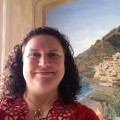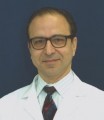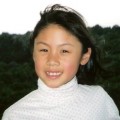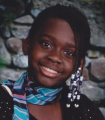You are here
News
2013
Sep 2013 Sarah Shaffer, co-founder
Sep 2013 For families that have recently discovered they are expecting, they find themselves in a whole new world of terms, books, products and services. Perineal massage, Chimparoo, placenta encapsulation, cord blood banking, attachment parenting, pee-pee-teepee, oh my! It is like learning a new language. They know they need a health care provider, but do not know the differences among their options. They hear such terms as doula and wonder, "What is that anyway, and do I need one? Is a doula like my doctor or midwife? If I have a midwife, why do I need a doula?" Breathe, we will clarify everything.
Aug 2013 Millions of people worldwide suffer from neurological diseases of the brain and spinal cord, such as Alzheimer's disease, stroke, Lou Gehrig's disease (ALS), traumatic brain injury, and spinal cord injury; all devastating and deadly diseases that lack adequate treatment options.
Aug 2013 Your own fat tissue is an abundant source of stem cells. Ever since Mesenchymal Stem Cells (MSCs) were first extracted from adipose tissue in the late 1990's, there has been an exponential growth in research and clinical trials using stem cells derived from adipose (fat) tissue.
Aug 2013 Since 2003, Washington DC-based Hope for Henry has made life better for more than 10,000 kids bravely fighting cancer and life-threatening blood diseases. While undergoing bone marrow transplants, chemotherapy, and other life-saving procedures, 368 kids have had incredible in-hospital birthday parties; 1,036 kids were entertained and uplifted by gifts of brand new iPads or portable DVD players and gaming systems; 1,675 princesses, superheroes, witches and goblins trick-or-treated in the hospital wearing brand new costumes; 286 girls and moms looked and felt beautiful during their fashion photography session after having their makeup and nails done; and 2,041 kids have met Batman. This is just a small sample of Hope for Henry's entertaining program that produces smile after smile while distracting kids from painful medical procedures and the tedium of long hospital stays that are a necessary part of their treatment.
Jul 2013 Finding ways to speed up cord blood stem cell engraftment has become somewhat of a Holy Grail for the transplant community, both to save patient lives and to increase the utility of banked cord blood. Current research strategies fall into the following three categories:
1. Culture the cord blood stem cells in the lab to "expand" the number of active cells
2. "co-transplant" cord blood stem cells with another stem cell type that will engraft temporarily and act as a bridge until the cord blood stem cells engraft,
3. Enhance the "homing" ability of cord blood stem cells so that they enter the bone marrow faster and engraft.
Jul 2013 I have worn many hats in my life but the one I take most seriously is my 'mommy beret'. The decisions I make on my children's behalf can impact their whole lives, and the responsibility of it all sometimes overwhelms me.
Jul 2013
Joanne Pang: April 18, 1993 -
January 13, 2003
Jun 2013 It is known that many infectious diseases such as HIV/AIDS are epidemic in Africa, where over 22 million people live with this disease. However, non-communicable and genetic diseases also have a high prevalence in Africa, and need to gain higher priority in the health agenda. Over 12 million people in Sub Saharan Africa have diabetes, and the prevalence is rapidly increasing. The World Health Organization (WHO) reports that 75% of the cases of sickle cell disease occur in Africa. In some countries like Nigeria, 150,000 children are born with the condition each year. Furthermore, the sickle cell carrier status is as high as 45% in countries like Uganda, and ranges between 20% to 30% in countries like Nigeria, Ghana, Republic of Congo, Gabon and Cameroon. (1)
Jun 2013 Hi, my name is Marriam Carol Mulumba. You can call me Carol. I was born on May 31, 2001. I am 12 years old. I was born with a disease called Sickle Cell Anemia. Unfortunately for me, I had the severe type. The doctors said I wouldn't live past five. My mom and dad were depressed all the time. Everything was hard for me. Running, walking, and even holding something was so painful! My life was miserable.










